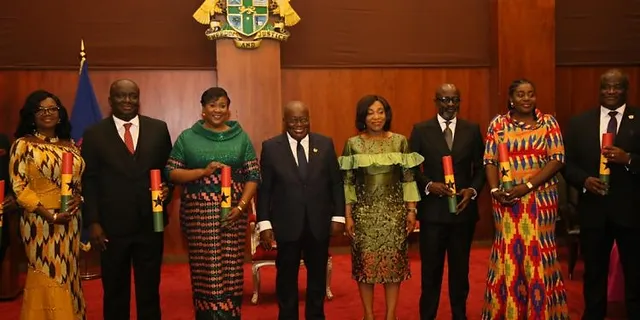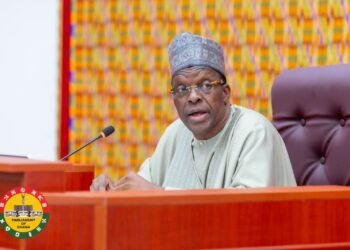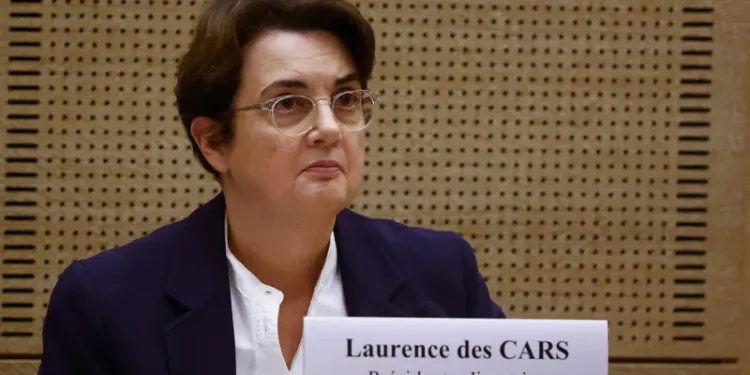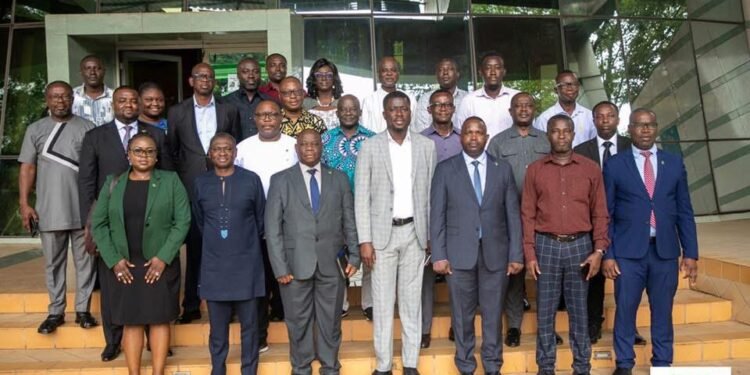President Akufo-Addo’s recent appointment of ambassadors and high commissioners, a mere six months before the 2024 general elections, has sparked a robust debate not only about the legality of such decisions but also their moral and practical implications.
With just six months left in his term, critics argue these appointments are unnecessary, possibly nepotistic, and a misuse of presidential power.
Civil society leaders, including Dr. Kwame Asiedu Sarpong of CDD-Ghana, have been vocal in their condemnation, questioning the motives and timing behind these decisions.
Dr. Abdul Hakim Ahmed, a lecturer at the Department of Political Science, University of Education, Winneba, in an interview with Vaultz News, provided a nuanced analysis of these appointments.
Legally, Dr Hakim Ahmed pointed out that the President possesses the constitutional right to make such appointments, adding that this executive authority is enshrined in the constitution and cannot be disputed on legal grounds.
However, Dr Hakim Ahmed noted that the controversy does not stem from legality but from the morality and practicality of these decisions, particularly given their timing.
Political Motives and Timing
From a moral standpoint, the renowned political scientist highlighted the questionable timing of these appointments.
He posited that with six months before an election, new ambassadors and high commissioners are unlikely to fully settle into their roles and effectively carry out their duties.
According to him, it typically takes a minimum of six months for any public appointee to acclimatize to their new position, understand the institutional dynamics, and begin to perform effectively.
Given this timeframe, Dr Hakim Ahmed noted that it is highly improbable that these new appointees will be able to significantly contribute to President Akufo-Addo’s agenda, such as the Ghana CARES (Obaatanpa) programme.
“So if you add all this to the first minimum month minimum, he has to understand the situation on the ground before he begins to make a lot of networks that in the President’s mind would bring investment, friendly relations, and cooperation and understanding between Ghana and those countries, then one begins to question the timing as you have alluded to of this kind of appointment, you know, given the closeness to the elections, of 2024, which is going to happen on the 7th December.
“So, morally, yeah, in terms of how the individuals are going to work on the ground. It’s going to affect them. And it’s also going to slow the administrative works that they are supposed to do in those, embassies and consular offices outside the country”.
Dr Abdul Hakim Ahmed, Lecturer, Department of Political Science, University of Education, Winneba
Financial and Strategic Impact
Highlighting the financial implications of the President’s latest ambassadorial and high commissioners appointment, Dr Hakim Ahmed noted that while the financial implications of these appointments might not be substantial in terms of salaries and allowances, the strategic impact is more concerning.
He asserted that even though the primary role of ambassadors and high commissioners is to foster diplomatic relations and attract investment, with only six months before a potential change in administration, the ability of these appointees to achieve tangible results is limited.
This short tenure, he emphasized undermines the strategic objectives they are supposed to fulfil, resulting in a potential loss for Ghana in terms of missed opportunities for diplomatic and economic advancements.
“The appointment has no impact on anything because by the time they assume office properly, and start working to attract whatever investment the President has authorized them to do, and then to also play other diplomatic role in promoting, friendly relations between Ghana and those countries.
“By the time they sit down and do those things and expect the results the President expect the results to be able to push forward his agenda of the Obaatanpa agenda. Those, objectives of the President, whatever they are in terms of getting some benefit from that aspect is not going to materialize because, in the first place, by the next 6 months we are going to have a new election, so in a nutshell there’s very minimum or little or nothing that those, appointees can achieve in concrete terms. So that is for me, where there is the loss”.
Dr Abdul Hakim Ahmed, Lecturer, Department of Political Science, University of Education, Winneba
The Politics of Appointments
Furthermore, Dr. Abdul Hakim Ahmed, a lecturer at the Department of Political Science, University of Education, Winneba decried the tendency of outgoing Presidents to reward loyalists with high-profile appointments.
This practice, which he stated is deeply rooted in Ghanaian political culture, raises concerns about the politicization of public service.
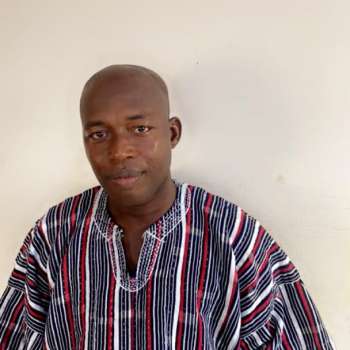
He emphasized that by appointing individuals based on loyalty rather than merit or public interest, political leaders risk undermining the integrity and effectiveness of the public service.
“It’s basically to please, people closer to the president. Within the civil service, you know, across all institutions, there is a partisan division, in which we have those who belong to party A or party B although you cannot see it openly.
“But there are those kind of individuals who have taken position of partisan even if we can’t say that ii open. So the politicians are aware of those individuals. So there is a tendency that, you know, political leaders like presidents getting into their end of tenure would want to reward those individuals, you know so that they reach the pinnacle of their career”.
Dr Abdul Hakim Ahmed, Lecturer, Department of Political Science, University of Education, Winneba
The career trajectories of these appointees, many of whom are career diplomats, according to Dr Hakim Ahmed are significantly impacted by such appointments.
However, Dr Hakim Ahmed pointed out that while reaching the pinnacle of one’s career is a noteworthy achievement, the motivation behind these promotions must be scrutinized., questioning whether these appointments are in the best interest of the country, or are they merely a means to reward political supporters.
Future Implications and Recommendations
Moreover, Dr Abdul Hakim Ahmed, indicated that the precedent set by these appointments poses a risk to Ghana’s democratic processes and institutional integrity, stressing that the recurring nature of these last-minute appointments poses a broader question about Ghana’s political culture.
He mentioned that if outgoing Presidents continue to make last-minute appointments, it could erode public trust in the political system and lead to a cycle of partisan appointments that do not necessarily serve the public good.
To maintain democratic integrity and ensure responsible governance, Dr. Hakim Ahmed suggested a re-evaluation of the laws granting extensive powers to the President.
He argued that implementing restrictions on appointments and significant decisions within a certain period before elections could mitigate such issues.
This, he expressed confidence would ensure that outgoing Presidents do not use their remaining time in office to make politically motivated appointments that have little practical benefit.
In addition, Dr Hakim Ahmed called for the institutionalization of a culture where public interest takes precedence over political loyalty.
“The precedent has already been set. But my point is that when are we going to see an end to that? For me, that is where the issue is. When are we going to see an end to this kind of behaviour from the political class? We have to begin to be, you know, truthful to the public and whatever in as much as we have the public authority or the legal authority, it is important that we are truthful and fair to the public so that we don’t end up, wasting, resources in terms of time”.
Dr Abdul Hakim Ahmed, Lecturer, Department of Political Science, University of Education, Winneba
He underscored the critical need for political leaders to prioritize the welfare of the nation and its citizens, ensuring that appointments are made based on merit and the ability to serve effectively.
As President Akufo-Addo’s administration draws to a close, the controversy surrounding his recent appointments serves as a stark reminder of the need for more accountable and transparent governance.
Dr. Abdul Hakim Ahmed’s insights highlight the delicate balance between legal authority and moral responsibility that must guide the actions of political leaders.
It is only by adhering to principles that prioritize the nation’s long-term well-being over short-term political gains that can help Ghana to strengthen its democratic institutions and ensure a fairer, more just society for all its citizens.
READ ALSO: Labour To Replace NHS England Chair With Party Loyalist



